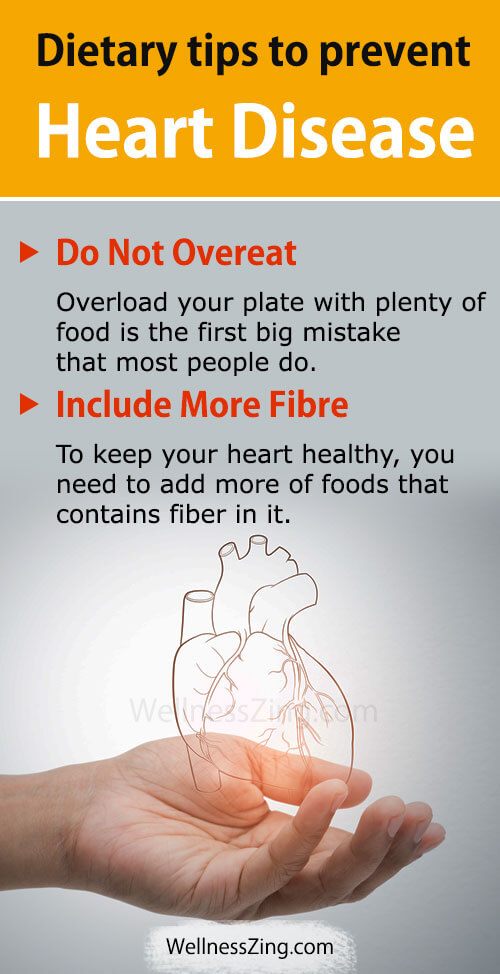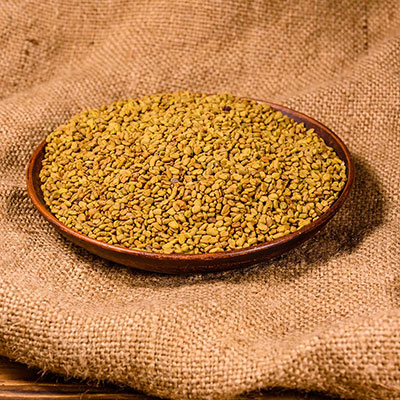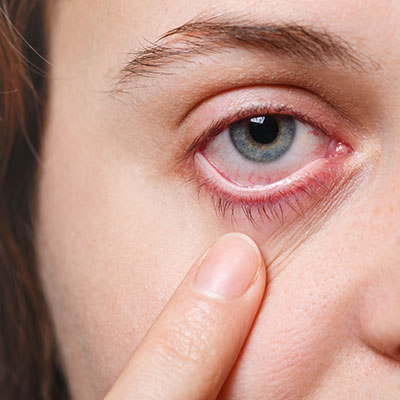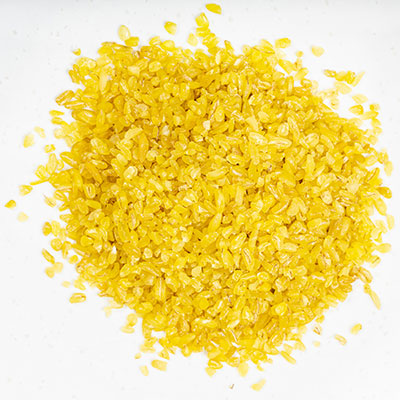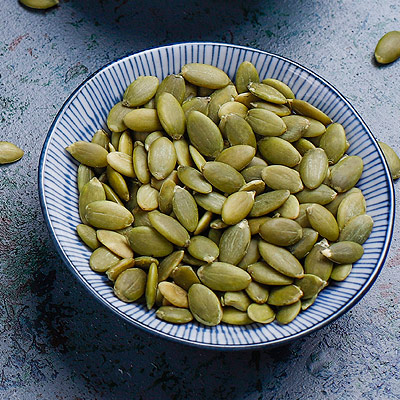Heart is one of the most important organs in the body. It pumps the blood to all the parts of the body. The nutrients, and oxygen in the blood nourishes the cells, and tissues of the organs and help in their sound operation.
Sedentary lifestyle, junk food, smoking, etc. can impair the functioning of this vital organ in the body. This can result in the development of severe issues in the arteries, that can cause buildup of “Plaque”. This condition can result into blockage of blood circulation in the arteries, and can lead to heart failure.
In this article, we will tell you about the conditions that can contribute to heart disease, and food, and lifestyle changes, that can help you in its prevention or management.
Factors that contribute to Heart Disease
Preventing cardiovascular diseases require making smart lifestyle choices that will give you returns for the rest of your life. Smoking, stress, anxiety, lack of physical movement, unhealthy diet, consumption of alcohol, and negative emotions like jealously, fear, and anger can deteriorate the functioning of your heart.
Heart diseases can happen at any age. The warning signs can be different in men, and women. Learning about these signs of heart disease will help you take immediate assistance and save your life.
As Prevention is better than cure, it is important to adopt a healthy lifestyle now so that you can keep your heart healthy throughout your life. Let us see some effective lifestyle, and heart-healthy food tips to keep your heart hale and hearty.
Tips for All Age Groups
Irrespective of age, a healthy diet and adequate exercise on a daily basis are the two essential things that you need to adopt.
Healthy eating will reduce the chances of heart diseases and stroke. A healthy diet comprises of plenty of fruits, and vegetable, fiber-rich whole grains, lean sources of meat, nuts, low-fat dairy items, complex carbs, and low amounts of sodium, red meat, saturated fat, trans fat, and sugar.
Do moderate intensity exercise for forty minutes for five days a week. Be active. It can be brisk walking, running, jogging, swimming, skipping, etc. These exercises will make your heart beat faster, and will increase fresh supply of blood to all parts of the body. If your health permits, you should even incorporate strength training exercises to make your heart muscles strong.
When you are in your 20s
This is the right time to start performing regular heart-health screenings twice a year. Talk to the doctor about the diet, blood sugar, heart rate, body mass index, cholesterol levels, and lifestyle. Make exercise a part of your lifestyle. Abstain from smoking as it is one of the major cases behind lung cancer and heart disease. Abstaining from any bad habits is the key to prevent heart disease.
When you are in your 30s
This is the age when most of the people are seen to juggling with career, and family. They have less time to take care of their hearts. Sometimes this negligence becomes the reason for heart issues. If you want to remain healthy, then you need to seek balance in all three things.
In this age, people are also more likely to experience mental fatigue. As they have more to accomplish in less time, they may get anxious, stressful, angry etc. You need to perform regular stress relieving exercises such as rhythmic breathing, meditation, yoga etc. to manage these issues.
Weight control is very important and necessary as it is another important factor that contributes to cardiac risks. Make heart-healthy habits and implement it in your life diligently. Try to walk more than relying on vehicle for short-distance travel. As heart diseases are hereditary, you need to be cautious about increased chances of disease. Regular examination, and a heart-friendly lifestyle will help.
When you are in your 40s
This is the time when most of the people will plan to retire from services. You would experience that your metabolism will reduce and you start to gain weight. Also, some of you may feel tiredness and less energetic than what you were in your 30’s. Moderate level exercises, and healthy food choices will help in strengthening your heart and keeping it in best state.
At this stage, it is very much important to get your heart health, blood sugar, blood pressure and cholesterol levels checked every year. Do not ignore snoring. If your partner complains about it, then you need to treat it as this condition can contribute to increased blood pressure, and cardiac disease.
When you are in your 50s
50’s are characterized with greying of hair, and appearance in wrinkles. Due to slower metabolism, may not be able to digest food properly. If you do not stick to a healthy diet, you can even notice a spike in your cholesterol, and blood glucose levels. Avoid meat as it is hard to digest and choose well-balanced vegetarian diet.
Be cautious about heart attack symptoms like numbness, breathing trouble, and uneasiness, and pain in the chest. As men and women experience these symptoms differently, it is important to consult your doctor about it.
At this age, many people are diagnosed with high cholesterol, high blood pressure, diabetes etc. that can increase your chances for heart disease. Get regular checkups and follow your treatment plan. Reduce the risk by following prescribed treatment that includes medications, diet changes and lifestyle changes.
When you are in your 60s
With age you will notice increased risks for heart disease. It is very important to keep check on your vitals to prevent heart disease. Closely watch your numbers in cardiac tests and work towards managing them. The requisite exercise, and healthy eating will assist you in living better and longer life. Your doctor may advise you to perform ankle-brachial index test, diagnose peripheral artery disease, etc.
At this age, your body requires less calories. You need to watch your body weight and shed extra kilos from the body. Excess weight requires your heart to work more. This puts excess stress on it and reduces its functioning. Regular exercise, and eating small portions of foods that are dense in nutrients. It will help in keeping your weight in check.
Dietary tips to prevent heart disease
What you eat plays a major role in your heart health. Intake of heart-healthy diet will keep you protected from heart risks to a considerable extent. Here are a few heart-healthy food tips that will help you fine-tune your diet.
1. Monitor portion size
Overload your plate with plenty of food is the first big mistake that most people do. Not taking time in swallowing the food leads to overeating. This increases calorie content in your body and result in weight gain.
Using a small bowl, or plate is a good way to control serving size. Your diet should comprise of high amounts of vegetables, and fruits and small amounts of high-sodium, and calorie foods. In this way, it will keep your heart and waistline in best shape.
2. Monitor serving size
The next thing that you need to do is to monitor your servings for every food group that you include in your diet. You can use a measuring spoon, or cups to ensure that you don’t overboard.
3. Reduce unhealthy fats
If you are on a heart-healthy diet, then it is very important to reduce foods that contains trans fats, and saturated fats in it. This is because they can increase cholesterol levels in the blood, and increase possibilities of coronary artery disease. A high cholesterol level in the blood can result in the formation of plaques in the arteries that can become the cause of stroke, and heart attack.
To prevent an increase in saturated fat level, you can reduce the amount of cooking. Reduce intake of meat, and fat sources like butter, and margarine. Use low-fat substitutions and opt for baking in place of frying your food. Choose heart-healthy oils like canola oil, and olive oil, that is light and good for your heart. Always check the calorie content, added sugar, saturated and trans-fat amount on the product label before you buy it.
Eat more of nuts, avocados, flaxseeds, fish and seeds that have heart-friendly polyunsaturated fats, and omega 3 fatty acids in it that aids in reducing cholesterol levels in the blood. These fatty acids have the ability to reduce fats content i.e., triglycerides.
Whether good fat, or bad fat, they all have high calorie content in it, so ensure that you practice moderation while eating your food. Refrain from Bacon fat, cream sauce, cocoa butter, palm-kernel oils, non-dairy creamers, gravy, and coconut.
4. Include more Fiber
To keep your heart healthy, you need to add more of foods that contains fiber in it. Include items that have good amounts of minerals, dietary fiber and vitamins in it. They are easy to digest and helps in weight management. Fruits, and vegetables helps to reduce unhealthy eating, and aids in the prevention of cardiac disease.
In addition to it, consume nuts, seeds, and whole grains like quinoa, oats, wheat, and barley, as they have good amounts of fiber in it. Refrain from refined flour, white bread, pasta, muffins, corn bread, cake, biscuits, doughnuts, pies, noodles, buttered popcorn and fat rich snacks.
Fresh and frozen fruits, and vegetables, low-sodium canned vegetables, low sodium and fat soups, unsweetened fruit, and vegetable juice, are ideal to consume in your diet. Abstain from high fat and creamy soups, fruit juices in heavy sugar syrup, fried vegetables, frozen fruit with added sugar.
5. Consume low “sodium”
Sodium is one of the major culprits that contribute to cardiovascular disease or high blood pressure. Lowering intake of sodium is essential in a heart-healthy diet. Use low amount of sodium when you are preparing dishes at home.
Avoid processed, canned, frozen and packed foods as they have more sodium in it. Be careful when selecting condiments. Opt for those that adds flavor with less sodium such as herbs, salt-free seasoning, spices and reduce salty soy sauce, ketchup, mayonnaise and ready to eat meals.
6. Include low-fat lean sources of protein
Lean meat, fish, legumes, peas, lentils, beans, low-fat cheese, flaxseed, soybeans, and walnuts are some of the best protein sources. Abstain from whole milk, and fried form of chicken patties.
It is advised to avoid meat but if you can’t completely eliminate it, then choose low-fat, and healthier sources of meat that includes poultry eggs, skim milk, fish, salmon, mackerel, skinless chicken breasts.
Frequently Asked Questions About Heart’s Health
Here are some questions that will help you get answers to some of your queries:
1. What is cholesterol?
Cholesterol is a kind of waxy substance that is secreted by your body as well as obtained from food. It helps in synthesis of vitamin D and reproductive hormones, like estrogen in females, and testosterone in male, and aids in digestion.
Some amount of it is needed for proper functioning of the body. But when this amount rises beyond a specific level then it causes harm to the body in the form of heart disease, diabetes and stroke.
2. How does cholesterol lead to heart risk?
Bad cholesterol, or low-density cholesterol can lead to clogging of artery and formation of plaque in them. To treat this condition, you need to reduce bad cholesterol and increase good cholesterol as it helps in the elimination of plaque.
3. How can I check high cholesterol?
High cholesterol is hard to detect as there are no symptoms that gives an indication about it. You can check it with the help of performing cholesterol tests. It requires twelve hours of fasting before taking this test. This test provides you information about the levels of total cholesterol, bad (LDL), and good (HDL) cholesterol, and triglycerides. These values will indicate whether you are at a risk of heart disease or not.
4. How frequent is it required to perform cholesterol tests?
People who are between 25 to 35 years, should perform this test once in two years. After the age of 35, it is needed to perform this test once in every year.
5. What are the ways to reduce low cholesterol levels?
Eat healthy food, do moderate exercise, refrain from smoking, manage stress levels, good sleep and medications are all needed to keep high cholesterol levels under control.
6. How does high blood pressure lead to heart disease?
High blood pressure, or hypertension, is the condition when the blood flow with high pressure through the arteries. Such high pressure can cause damage to your arteries, kidneys, heart, and various other organs in the body. You need to perform Yoga and exercise everyday as well as consume less salt to manage this condition and prevent heart disease.
Conclusion
Our heart is one of the vital organs of the body. The proper functioning of your body is dependent on the health of your heart. By adopting the right diet, and healthy lifestyle, and performing regular check-ups, will help in keeping your heart in the best condition forever.
If you liked this post, then do share it with your friends on social media. Also, you can write to us any of your queries, suggestions, and comments. We will be happy to address them soon.

